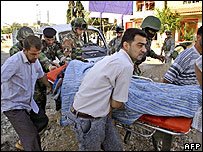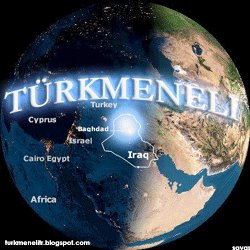BEIRUT, Lebanon, May 16 (UPI) -- Iraqi President Jalal Talabani lashed out at neighbors Iran and Turkey for interfering in Iraq's domestic affairs, warning Baghdad could reciprocate.
Talabani was quoted as saying Tuesday in Saudi daily Al-Sharq al-Awsat that "Iraq is not a weak country. The neighbors can create problems for us and we also are capable of causing problems for them."
He said, "if Iran allows itself to interfere in Karbala because it is a Shiite city and Turkey feels it can interfere in Kirkuk, that will open the way for very dangerous consequences."
"In that case," he added, "Iraq will also have the right to interfere in Khozestan in Iran on the grounds that it has an Arab population and the same applies to Alexandrite in Turkey which has an Arab population."
Talabani stressed, however, that Iraq and Iran have had historic relations which were both positive and negative "but there is always room for agreement and also between Iraq and Turkey agreement is possible."
He acknowledged that the two countries have plausible reasons to interfere in Iraq since the Kurdistan Labor Party attacks Turkey from Iraq's Kurdish north; a Kurdish group in Iran has done the same, taking refuge in northern Iraq.
"Nevertheless, we need to find a solution in order to eliminate all the pretexts used by Iran and Turkey to hit Iraqi territories," he added.





